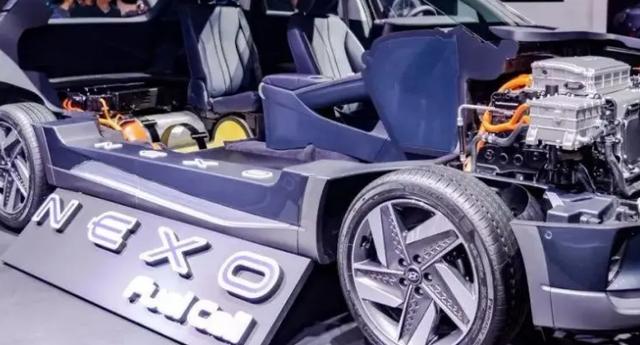What fuel do hydrogen energy vehiWhat fuel do hydrogen energy vehicles add?cles add?

The fuel for hydrogen energy vehicles is hydrogen. The hydrogen fuel engines and hydrogen-mixed fuel engines used are all hydrogen fuel engines, and both use hydrogen. By making corresponding modifications to the current gasoline engines, they can burn hydrogen.
- Introduction to Hydrogen Energy Vehicles
Hydrogen vehicles, as the name suggests, are vehicles that use hydrogen as an energy source, and convert the chemical energy generated by the hydrogen reaction into mechanical energy to propel the vehicle.
There are two types of hydrogen vehicles. One is the hydrogen internal combustion engine vehicle, which uses the internal combustion engine to burn hydrogen (usually obtained by decomposing methane or electrolyzing water) to generate power to propel the vehicle. The hydrogen fuel cell vehicle is to make hydrogen or hydrogen-containing substances react with oxygen in the air in the fuel cell to generate electricity to drive the electric motor, and the electric motor drives the vehicle.
- The development of hydrogen energy vehicles
Many companies have researched and developed hydrogen vehicles, with funds from private and government sources, but Ford has given up and put resources on pure electric vehicles; the Renault-Nissan alliance announced in 2009 that it would stop developing hydrogen vehicles; General Motors announced in 2009 In October 2009, it was announced to reduce the research and development of hydrogen vehicles, because it was believed that hydrogen vehicles were still far from practical. In 2009, Nissan launched a new FCV plan in Japan. Toyota, Daimler, Renault and Kia Motors issued a joint statement to develop fuel cell vehicles. In 2011, Hyundai Group released its Blue fuel cell vehicle.
- Advantages and disadvantages of hydrogen energy vehicles
Its advantages are obvious, such as small size, large capacity, no pollution, and zero emissions. Compared with ordinary chemical batteries, fuel cells need to supplement hydrogen. The best ones are Toyota, Honda, and Hyundai, which have mass-produced fuel cell vehicles on the market. .
Compared with electric vehicles, hydrogen fuel cell vehicles are more convenient because it will take 3 minutes to 5 minutes to refuel, unlike electric vehicles that charge for several hours, and even the fastest charging speed takes more than half an hour.
Although hydrogen fuel cells are not a new technology, because in the 1960s, hydrogen fuel cells have been successfully used in the aerospace field, but the research speed is slow, the investment is large, the products are few, the cost is high, and the market is small.
- Introduction to Automobile Fuel
A fuel generally refers to a substance capable of converting its stored chemical energy into thermal energy through a chemical reaction (combustion). The fuels currently used in automobiles are mainly gasoline and diesel. With the increasing number of automobiles year by year, the problem of environmental pollution caused by automobile emissions and the gradual shortage of petroleum resources cannot be ignored. Therefore, various alternative fuels have also been used more and more widely. Alternative fuels for engines developed and used in China include natural gas, liquefied petroleum gas, methanol, ethanol, biomass fuel, hydrogen and dimethyl ether.







